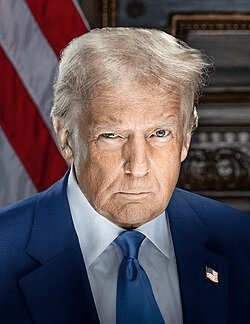While his administration has put the global economy under pressure with tariffs, on Polymarket, a decentralized betting platform that uses blockchain technology, Donald Trump currently ranks second in predictions for the 2025 Nobel Peace Prize. With an estimated 11% probability, he is only surpassed by Yulia Navalnaya, the wife of Russian dissident Alexei Navalny, who has 18% of the bets.
For its part, on Kalshi, a platform regulated by the Commodity Futures Trading Commission (CFTC), Trump presents a 13% probability, compared to 25% for Navalnaya. This notable presence in the odds fuels an unexpected media debate. Thus, Trump has become the unlikely successor to an award with which few associated him, at least traditionally.
Next, the key elements highlighted on the main predictive platforms:
▫️$1 million has been wagered on Polymarket for this prediction;
▫️Kalshi shows a total volume of $3.1 million in the category;
▫️Trump surpasses traditional Nobel Prize figures such as Doctors Without Borders or the UN.
The reasons for this enthusiasm are sought in political statements and recent media maneuvers. Hillary Clinton even reportedly stated that she would 'support his nomination if he managed to end the war in Ukraine.'
This unexpected exit from a former rival underscores the complexity of the context and the ambivalence of the reactions. Predictive markets translate these developments into concrete signals.
What really distinguishes this news, beyond Trump's unique figure, is the growing role that crypto predictive markets play in shaping media narratives.
Polymarket and Kalshi are not just simple betting sites. They add on-chain data and user anticipations in real-time, whose choices often reflect a speculative but also emotional reading of upcoming events.
Other actors are well represented: UNRWA (9%), Doctors Without Borders (11%), the International Court of Justice (8%), as well as figures like Greta Thunberg, António Guterres, and Francesca Albanese. This diversity illustrates a strong polarization of expectations in a context of persistent global conflicts and urgent climate challenges.
However, it would be risky to confuse these odds with objective probabilities. Predictive markets reflect bets, not verdicts. Their volatility is influenced by media cycles, cognitive biases, and sometimes even coordinated campaigns to buy contracts to artificially inflate certain candidates.
In Trump's case, his high visibility could explain this sudden surge. The Trump surprise is perhaps less an institutional recognition than a signal of the state of opinion from a part of the crypto and political ecosystem.
Nevertheless, this quest for recognition is not without criticism. Several analysts point out the contradictions between nominations and realities on the ground, recalling American bombings in Iran or the lack of tangible results in certain matters. As the award ceremony approaches, scheduled for October 10, 2025, these tensions are expected to intensify, fueling the debate about the legitimacy and symbolism of such recognition.
